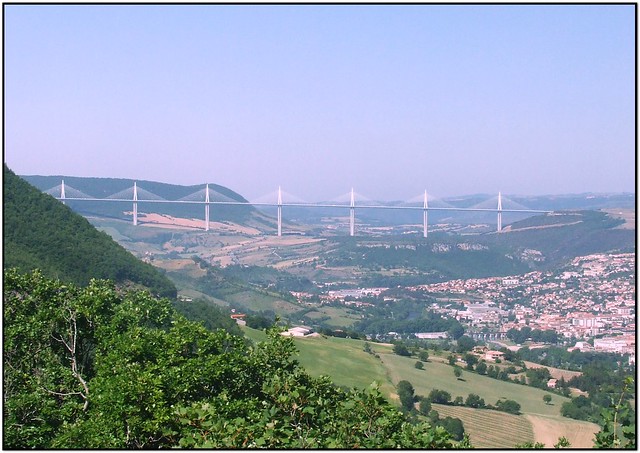
http://en.wikipedia.org/wiki/Millau_Viaduct
"When a true genius appears in the world, you may know him by this sign, that the dunces are all in confederacy against him."
Jonathan Swift
***
"When a true genius appears in the world, you may know him by this sign, that the dunces are all in confederacy against him."
Jonathan Swift
***
Dear
A,
If
you're not familiar with TED Talks, here's good opportunity to
check them out. http://www.ted.com/talks/
In
this talk, Navy Admiral, James Stavridis (who also serves as NATO's Supreme
Allied Commander in Europe and Commander of the US European Command), gives his
thoughts on Global Security.
"Imagine global security driven by collaboration --
among agencies, government, the private sector and the public." That's not
just the distant hope of open-source fans, it's the vision of James Stavridis,
NATO's Supreme Allied Commander Europe and Commander of the US European
Command. Stavridis shares vivid moments from recent military history to explain
why security of the future should be built with bridges rather than walls."
"What will 21st-century security look like? Navy Admiral
James Stavridis suggests that dialogue and openness will be the
game-changers." Full bio
According to Stavridis, “Walls don't work. … Instead of
building walls to create security, we need to build bridges.”
The admiral confirms my longstanding belief that peacemaking
is at least as important as warmaking, and that service is the cornerstone of
peace.
Without
the development of post-tribal service orientation -- whether "tribe"
is defined ethnically or religiously -- untenable divisions will continue to
grow within The Human Family.
As
remedy, I support two years of obligatory national service -
years when young people will choose to serve in a radically re-defined
"War Corps," or in a radically re-defined "Peace Corps."
The
recent triumph of rugged individualism over communitarianism (at
most formal, political levels) spotlights America's decline toward "failed
statehood."
Universal,
post-tribal service can reverse this trend.
"Conservatives"
will oppose this service because they prefer their children pay undistracted
attention to personal profitability.
"Liberals"
will oppose such service because, in their own way, they too have despaired of
government as an agency for good.
Despite
bipartisan opposition, obligatory national service is a good
idea.
Reflecting
on the World War II draft, it is clear (to me at least) that obligatory
national service was the specific mechanism that made "The
Greatest Generation" the greatest.
Pax on
both houses
Alan
PS Obligatory
national service would also achieve "single payer"
health coverage by sweeping everyone under the VA umbrella.
Bridge Building

Root Bridges of Meghalala






No comments:
Post a Comment